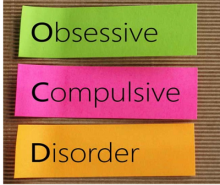
Member Prices
The webinar aims at helping clinicians identify and address family accommodation as it relates to OCD. Case examples – representing both adult and child cases – were used to illustrate the challenges and successes of addressing accommodation.
Family accommodation is generally defined as any way in which family member(s) play a role in the maintenance of obsessions and compulsions through taking part in rituals, permitting avoidance of anxiety-provoking stimuli, or modifying routines to accommodate OCD behaviors.
Addressing family accommodation is therefore an important component in treating OCD, and neglecting the role of family members can undermine Exposure and Response Prevention (ERP).
However, family accommodation can be a challenging issue for clinicians to tackle for a variety of reasons, including: difficulty recognizing the multitude of ways accommodation can occur, dealing with low motivation in family members to modify their behavior, family members' lack of information or misunderstanding regarding ERP, or reluctance of family members to disengage from accommodating behaviors for fear doing so will be too harsh/unsupportive to their loved one.
Strategies for working with parents were discussed, including ways to engage parents who may struggle to refrain from accommodating behaviors for fear of hurting or upsetting their child. In addition, the presenters offer attendees language and visuals/illustrations to use with reluctant and/or misinformed family members that could be useful in increasing their engagement treatment-supporting behaviors.
At the end of this webinar, attendees will be able to:
- Define and describe family accommodation as it pertains to OCD
- Recognize signs (“red flags”) of family accommodation when working with OCD patients
- Identify useful language to use with family members to address family accommodation of anxiety symptoms
Presentation Level: Intermediate / Advanced
This webinar is not eligible for CE credit.











